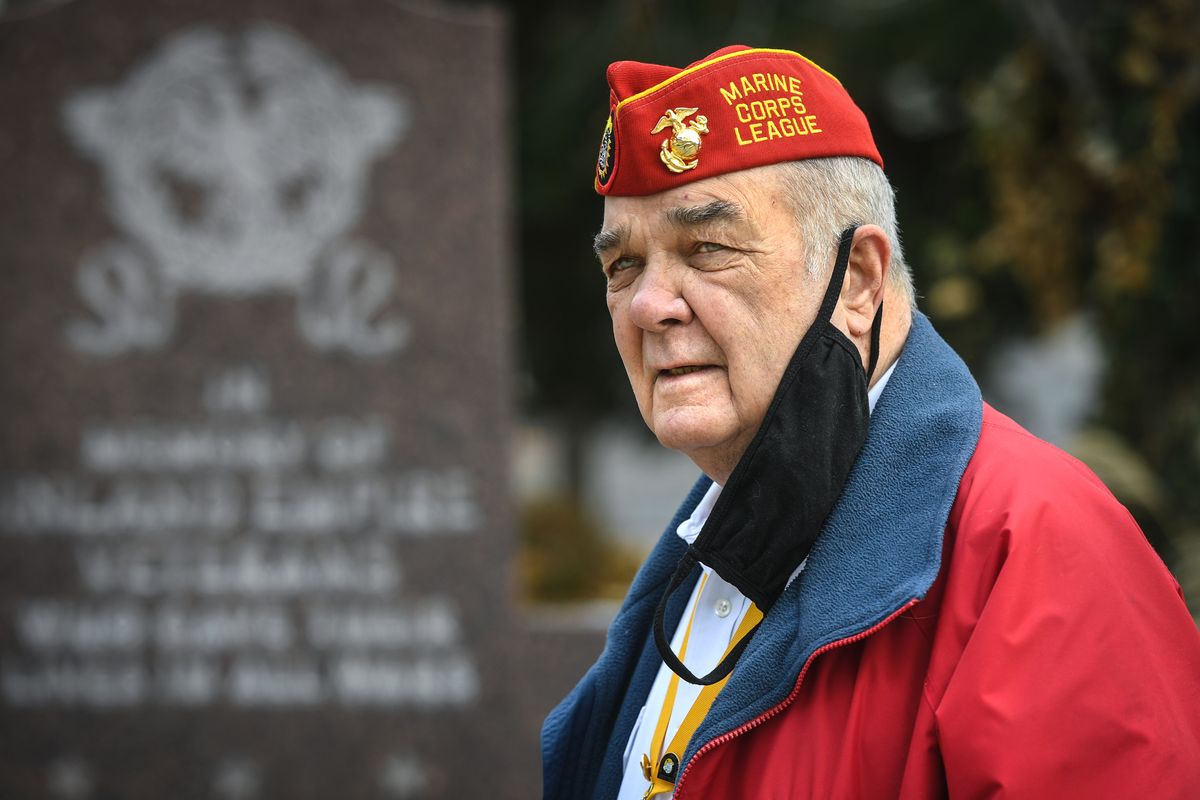Many veterans already struggle with isolation. Now, there’s COVID-19


Throughout the pandemic, Nick Hawkins, pastor at Redemption Church in Medical Lake, has talked with people who feel alone, isolated and confused.
He and the other pastors at his church have made it their mission to call the 300 people in their church every once in a while to check in.
Hawkins, who joined the Army at 17 and worked in the special operations command, knows how veterans especially struggle with isolation and post-traumatic stress disorder.
“There is still a wound for some veterans,” he said.
For many veterans struggling with PTSD, the pandemic brought on its own challenges. And with a Veterans Day unlike any other, many veterans agree it’s especially important to come together and honor those who served .
According to the National Center for PTSD, the pandemic can affect those with PTSD by making them feel more unsafe, experience more trauma triggers, increase negative thoughts and create problems with sleep and concentration. The Centers for Disease Control and Prevention acknowledged the difficulty many veterans might be facing as resources are limited .
The hardest part for many veterans is not being able to lean on each other, Michael O’Flaherty said. O’Flaherty, 83, served in the Marine Corps from 1955 until he was discharged in 1963. He was stationed at Camp Lejeune in North Carolina, but spent much of his time traveling.
“Our social interaction within the group is part of our healing process,” O’Flaherty said.
O’Flaherty eventually moved to Montana and then Spokane to work as a long-haul trucker. After suffering from a heart attack, he couldn’t work anymore, so he decided to volunteer at the Mann-Grandstaff VA Medical Center. He’s been volunteering for 10 years. He’s also an active member in the Spokane Marine Corps League and the area’s Veterans of Foreign Wars.
“The Spokane area is the most friendly veteran area in the United States,” he said.
Often in these groups, people connect about their experiences, O’Flaherty said. One of the best ways to cope with PTSD is through socialization and talking with others about it, something that has been limited during the pandemic.
It’s a touchy subject, O’Flaherty said, and each person handles it differently. Some prefer to talk about it, while others don’t take advantage of the help that is out there.
Anyone with PTSD generally has a problem with being isolated, said Stacia Bowers, 51, who served in the Marines from 1988 to 1998, ending her time in Spokane, where she grew up.
Since ending her time, Bowers has worked at the Spokane VA hospital and currently works at the Spokane Transit Authority.
Adding fear of COVID on top of that might lead to higher rates of depression or triggers spiking, Bowers said.
“It’s scary,” she said.
The pandemic affects public health and the economy, Hawkins said, but the isolation has its own negative effects on those with PTSD.
“When you mix those two things, you have a recipe for real desperate feelings,” he said.
Veterans Day celebrations might look different this year because of the pandemic, O’Flaherty said, but that makes it even more important to honor those who served in some way. The VA hospital, for example, put on a “drive-thru” celebration.
There’s a lot still up in the air, he said.
It’s “extremely important” to remember those who sacrificed their time and have a commitment to protecting the country, Bowers said.
“If we don’t remember those people, if we don’t honor them, then I think less and less people are going to want to be in the forces,” she said.
“We’re going to lose something so important to our country.”
Along with honoring those who served, Hawkins encourages people to check in on each other. When people are wrestling with pain and isolation, he said, they need someone else in their life.
“You can pick up the phone and call someone,” Hawkins said. “It just might mean the world to somebody.”